Dear Zazie,
Here is today’s Lovers’ Chronicle from Mac Tag:
The Lovers’ Chronicle
Dear Muse,
this one started out
with our intrepid hero
reminiscin’ about
the one that never was
“Then it changed”
yes into said hero
recallin’ that man
does not live on
solitude and sadness alone
“Glad to have inspired that”
you did, it was as if a fresh wind
came along and blew out
the clouds and blew in
long forgotten feelings
and i remembered
i could feel
© copyright 2023 mac tag/cowboycoleridge all rights reserved
dreamed a dream of somethin’ not known, read plenty about it, saw it up close with the only couple i knew had it, saw the movies, over and over, and listened to the songs so i knew it could happen but no one was more surprised than i, when i awakened to find you standin’ there
© copyright 2022 mac tag/cowboycoleridge all rights reserved
© copyright 2021 mac tag/cowboy coleridge all rights reserved
remember what was said
when last to which we came
all we sought,
yet could not have
right there, right then
but could not be
and now years hence,
dreams, born of due time
let it suffice, this verse,
tellin’ a tale not too abstract
and hopefully, not too late
© copyright 2019 mac tag/cowboy coleridge all rights reserved
rememberin’ the moments,
oh, there were more than one,
when everything could have changed
i really do not like carryin’ on
with too many words
so suffice to say, those moments
were every day i saw you
© copyright 2018 mac tag/cowboy coleridge all rights reserved
que saudade
i go, rememberin’
what was said and what
could not be said
when every day
seemed what we sought
© copyright 2017 mac tag/cowboy coleridge all rights reserved
when beginnin’ over
gittin’ reacquainted
with the things
given up for lost
along the way
what was forgotten
cannot rush towards
or sing about
what was buried
cannot overcome
or write about
the new moon
and the wind
blowin’ your hair
horses runnin’
across the plains
an awakenin’ man
standin’ at the foot
of a half remembered dream
© Copyright 2016 Mac Tag/cowboy coleridge all rights reserved
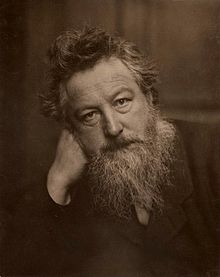 Today is the birthday of William Morris (Walthamstow, Essex, England 24 March 1834 – 3 October 1896 Hammersmith, Middlesex, England); textile designer, poet, novelist, translator, and socialist activist, born at Elm House in Walthamstow, Essex.
Today is the birthday of William Morris (Walthamstow, Essex, England 24 March 1834 – 3 October 1896 Hammersmith, Middlesex, England); textile designer, poet, novelist, translator, and socialist activist, born at Elm House in Walthamstow, Essex.
Morris married Jane Burden at St Michael at the Northgate in Oxford on 26 April 1859. After the marriage, the Morrises lived at Red House in Bexleyheath, Kent. While living there, they had two daughters, Jane Alice “Jenny,” born in January 1861, and Mary “May” (March 1862–1938), who later edited her father’s works. They moved to 26 Queen Square in London, which they shared with the design firm of Morris, Marshall, Faulkner & Co., and later bought Kelmscott House in Hammersmith as their main residence.
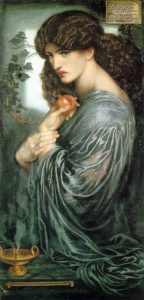
Jane Morris painted by Dante Gabriel Rossetti as Proserpine (1874)
Burden was an embroiderer and artists’ model who embodied the Pre-Raphaelite ideal of beauty. She was a model and muse to Morris and to Dante Gabriel Rossetti.
I too
Will go, remembering what I said to you,
When any land, the first to which we came
Seemed that we sought, and set your hearts aflame,
And all seemed won to you: but still I think,
Perchance years hence, the fount of life to drink,
Unless by some ill chance I first am slain.
But boundless risk must pay for boundless gain.
…
Dreamer of dreams, born out of my due time,
Why should I strive to set the crooked straight?
Let it suffice me that my murmuring rhyme
Beats with light wing against the ivory gate,
Telling a tale not too importunate
To those who in the sleepy region stay,
Lulled by the singer of an empty day.
…
“Ah! wilt thou leave me then without one kiss,
To slay the very seeds of fear and doubt,
That glad to-morrow may bring certain bliss?
Hast thou forgotten how love lives by this,
The memory of some hopeful close embrace,
Low whispered words within some lonely place?”
…
Love is enough: have no thought for to-morrow
If ye lie down this even in rest from your pain,
Ye who have paid for your bliss with great sorrow…
…
Lo, the lovers unloved that draw nigh for your blessing!
For your tale makes the dreaming whereby yet they live
The dreams of the day with their hopes of redressing,
The dreams of the night with the kisses they give,
The dreams of the dawn wherein death and hope strive.
…
Eve shall kiss night,
And the leaves stir like rain
As the wind stealeth light
O’er the grass of the plain.
Unseen are thine eyes
Mid the dreamy night’s sleeping,
And on my mouth there lies
The dear rain of thy weeping.
…
“Come — pain ye shall have, and be blind to the ending!
Come — fear ye shall have, mid the sky’s overcasting!
Come — change ye shall have, for far are ye wending!
Come — no crown ye shall have for your thirst and your fasting,
But the kissed lips of Love and fair life everlasting!
Cry out, for one heedeth, who leadeth you home!”
…
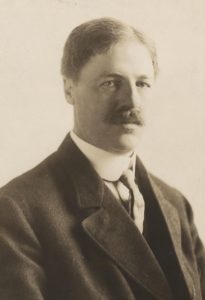 Today is the birthday of Frank Weston Benson, (Salem, Mass. March 24, 1862 – November 15, 1951 Salem, Mass.); artist perhaps best known for his Realistic portraits, American Impressionist paintings, watercolors and etchings. He began his career painting portraits of distinguished families and murals for the Library of Congress. Some of his best known paintings (Eleanor, Museum of Fine Arts, Boston; Summer, Rhode Island School of Design Museum) depict his daughters outdoors at Benson’s summer home, Wooster Farm, on the island of North Haven, Maine. He also produced numerous oil, wash and watercolor paintings and etchings of wildfowl and landscapes.
Today is the birthday of Frank Weston Benson, (Salem, Mass. March 24, 1862 – November 15, 1951 Salem, Mass.); artist perhaps best known for his Realistic portraits, American Impressionist paintings, watercolors and etchings. He began his career painting portraits of distinguished families and murals for the Library of Congress. Some of his best known paintings (Eleanor, Museum of Fine Arts, Boston; Summer, Rhode Island School of Design Museum) depict his daughters outdoors at Benson’s summer home, Wooster Farm, on the island of North Haven, Maine. He also produced numerous oil, wash and watercolor paintings and etchings of wildfowl and landscapes.
In the summer of 1884 Benson painted at Concarneau. While there, Benson became engaged to Ellen Perry Peirson, the daughter of friends from Salem, Massachusetts. They married in 1888 when Benson had established himself in his career.
Gallery
-

In Summer, 1887, Private collection. Portrait of Ellen Perry Peirson.
-

Portrait of My Wife, 1889, National Gallery of Art, Washington D.C.

-

Portrait of Margaret Washburn, 1886, Private collection
-

The Graces: Thalia, mural, 1900, Library of Congress, Washington, D. C.
-

Red and Gold, portrait of countess Clelia de Candia, 1915, Butler Institute of American Art, Youngstown, Ohio
-

The Sisters, 1899, Terra Museum, Chicago
-

Eleanor Holding a Shell, 1902, Private collection
-

Calm Morning, 1904, Museum of Fine Arts, Boston
-
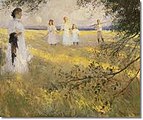
Evening Light, 1908, Cincinnati Art Museum, Ohio
-

The Anchorage, etching, 1915, Art Gallery, University of New Hampshire
-

Geese Alighting, ca. 1916, etching, Brooklyn Museum, New York
-

Ducks in the Rain, etching, 1918, Art Gallery, University of New Hampshire

-

Eleanor, 1907
-

Summer, 1909
-

Elizabeth and Ann, c.1909
-

Summer, portrait of countess Rita de Candia, 1909
-

Margaret Gretchen Strong, 1909
-
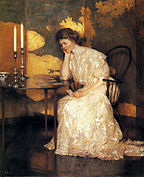
Playing Solitaire oil 1909
-

The Reader, portrait of countess Cecilia Maria de Candia, ca. 1910
-
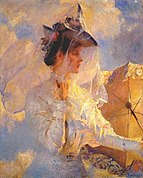
Against the Sky, ca. 1912
-

Study for Young Girl with a Veil, 1912
-

The Grey Room, 1913
-

The Dining Room Table, 1919
-

Great White Herons 1923

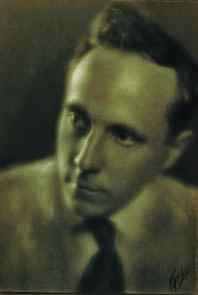 Tody is the birthday of Edward Weston (Edward Henry Weston, Highland Park, Illinois, March 24, 1886 – January 1, 1958 Carmel Highlands, California); photographer. In my opinion, one of the the most innovative and influential American photographers. Over the course of his 40-year career Weston photographed an expansive set of subjects, including landscapes, still lives, nudes, portraits, genre scenes and even whimsical parodies. His focus was on the people and places of the American West. In 1937 Weston was the first photographer to receive a Guggenheim Fellowship, and over the next two years he produced nearly 1,400 negatives using his 8 × 10 view camera. Some of his most famous photographs were taken of the trees and rocks at Point Lobos, California, near where he lived for many years.
Tody is the birthday of Edward Weston (Edward Henry Weston, Highland Park, Illinois, March 24, 1886 – January 1, 1958 Carmel Highlands, California); photographer. In my opinion, one of the the most innovative and influential American photographers. Over the course of his 40-year career Weston photographed an expansive set of subjects, including landscapes, still lives, nudes, portraits, genre scenes and even whimsical parodies. His focus was on the people and places of the American West. In 1937 Weston was the first photographer to receive a Guggenheim Fellowship, and over the next two years he produced nearly 1,400 negatives using his 8 × 10 view camera. Some of his most famous photographs were taken of the trees and rocks at Point Lobos, California, near where he lived for many years.
He knew he wanted to be a photographer from an early age, and initially his work was typical of the soft focus pictorialism that was popular at the time. Within a few years, however, he abandoned that style and went on to be one of the foremost champions of highly detailed photographic images.
In 1947 he was diagnosed with Parkinson’s disease and he stopped photographing soon thereafter. He spent the remaining ten years of his life overseeing the printing of more than 1,000 of his most famous images.
Soon after moving to Tropico, California, Weston was introduced to his sister’s best friend, Flora May Chandler. She was a graduate of the Normal School, later to become UCLA. She assumed the position of a grade-school teacher in Tropico. She was seven years older than Weston and a distant relative of Harry Chandler, who at that time was the head of an influential family in Southern California. On January 30, 1909, Weston and Chandler married in a simple ceremony.
Sometime in the fall of 1913, Los Angeles photographer, Margrethe Mather visited Weston’s studio because of his growing reputation, and within a few months they developed an intense relationship. Weston was a quiet Midwestern transplant to California, and Mather was a part of the growing bohemian cultural scene in Los Angeles. She was very outgoing and artistic in a flamboyant way, and her permissive sexual morals were far different from the conservative Weston at the time – Mather had been a prostitute and was bisexual with a preference for women. Mather presented a stark contrast to Weston’s home life, and he found Mather’s uninhibited lifestyle irresistible and her photographic vision intriguing.
Over the summer of 1920 Weston met two people who were part of the growing Los Angeles cultural scene: Roubaix de l’Abrie Richey, known as “Robo” and a woman he called his wife, Tina Modotti. Modotti, who was then known only as a stage and film actress, was never married to Robo, but they pretended to be for the sake of his family. Weston and Modotti were immediately attracted to each other, and they soon became lovers.
Gallery
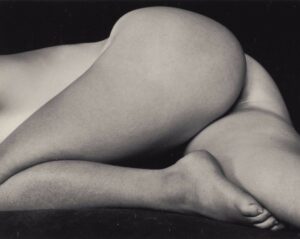
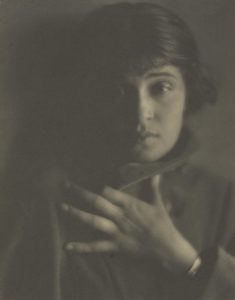
-
 “The White Iris” (Modotti)
“The White Iris” (Modotti) -
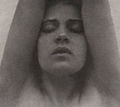 Modotti
Modotti
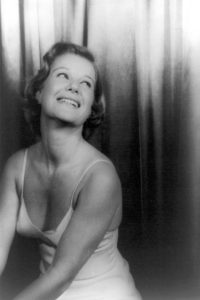
Barbara Bel Geddes as Maggie in the original Broadway production of Cat on a Hot Tin Roof (1955)
Maggie: I’ll win, all right.
Brick: Win what? What is the victory of a cat on a hot tin roof?
Maggie: Just staying on it, I guess. As long as she can.
Mac Tag



No Comments on "The Lovers’ Chronicle 24 March – rememberin’ – verse by William Morris – art by Frank Weston Benson – photography by Edward Weston – Broadway premiere of Cat on a Hot Tin Roof"